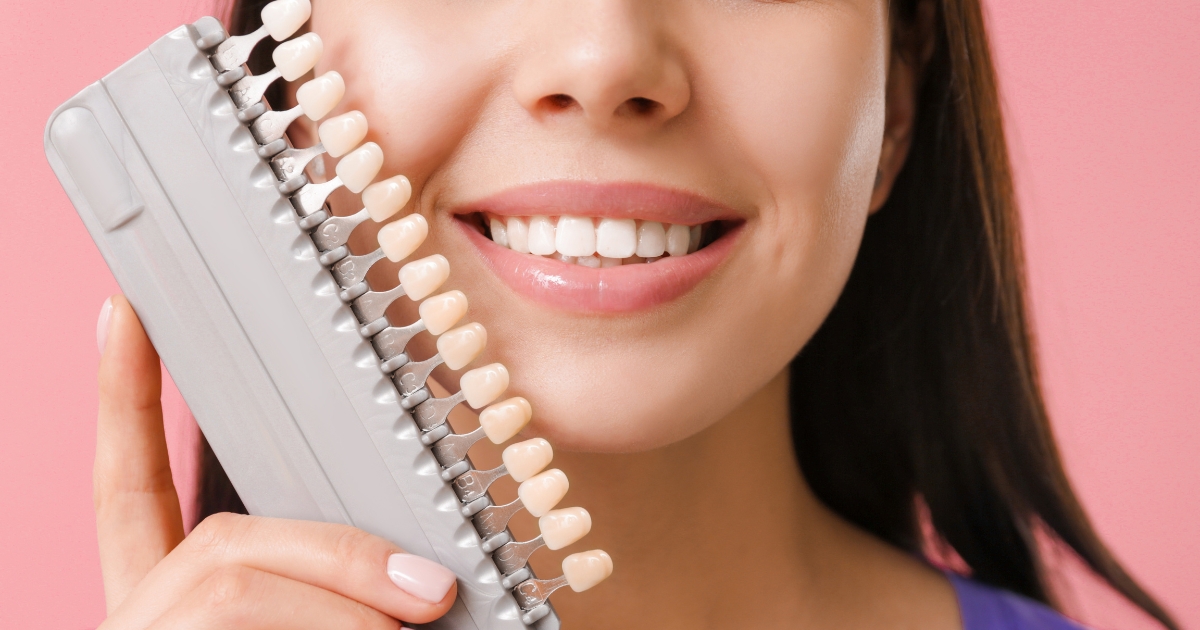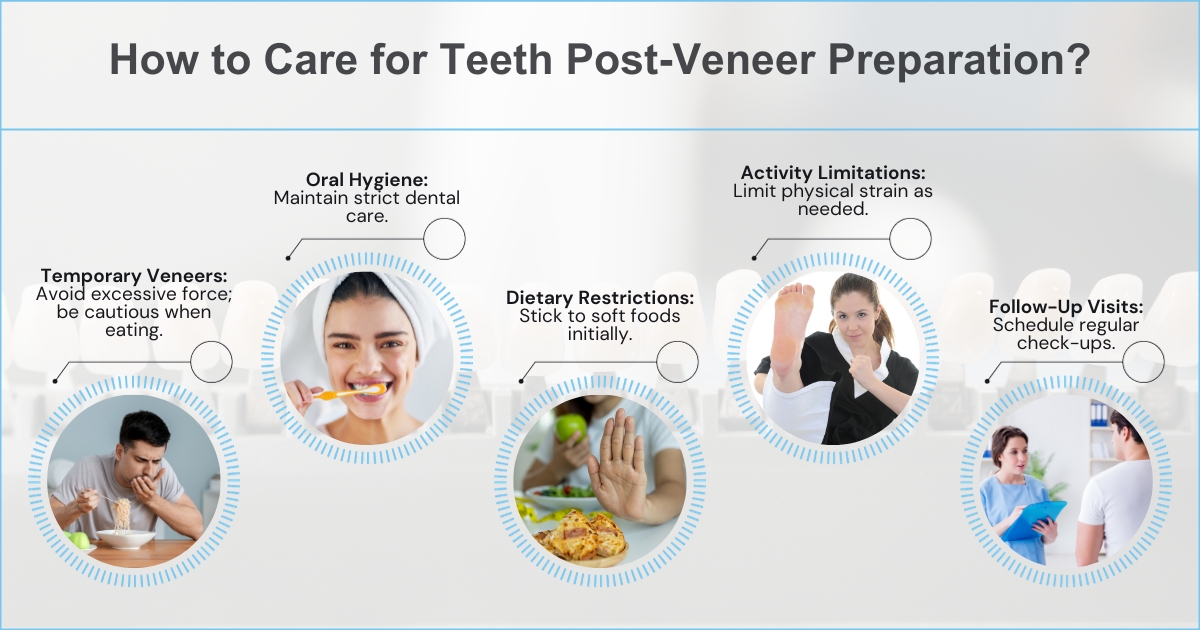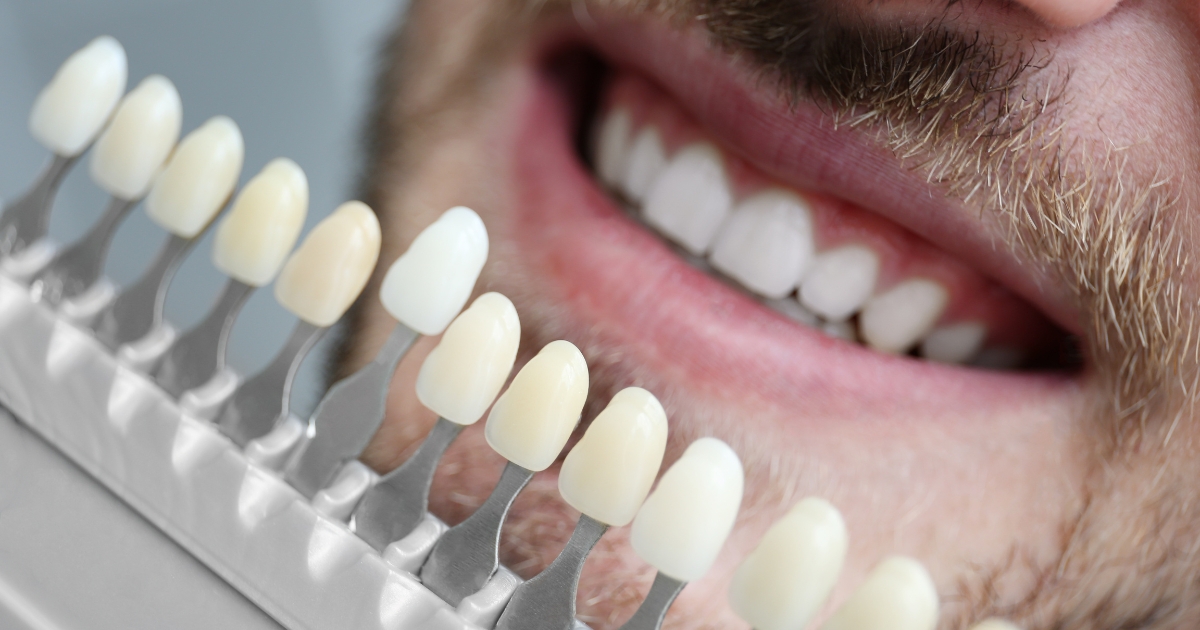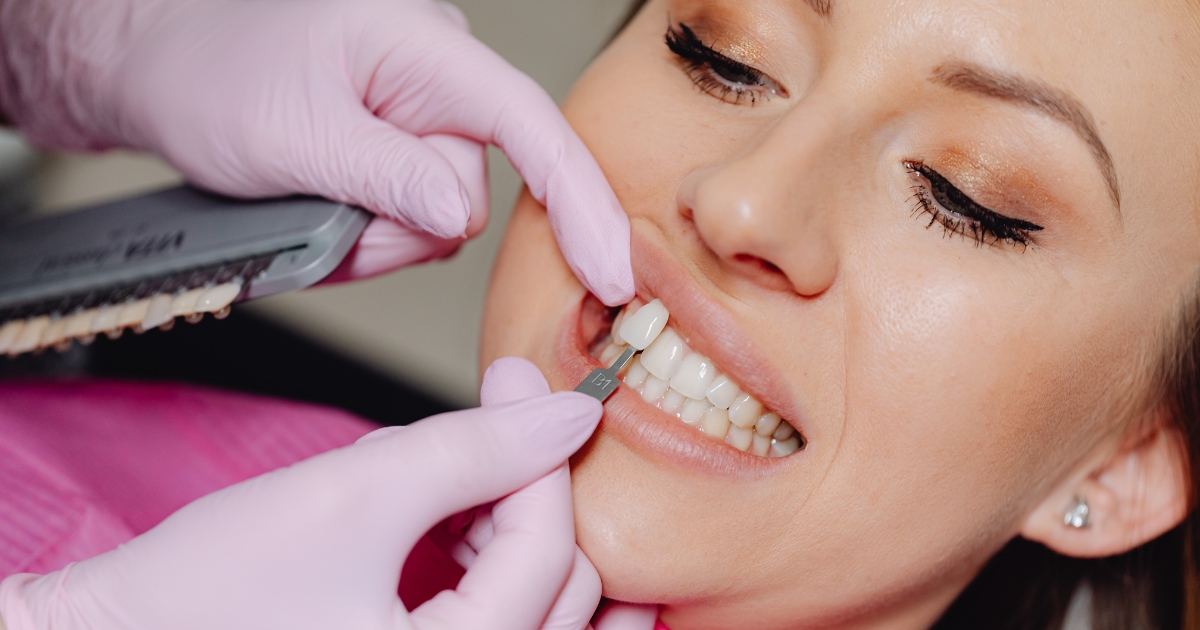Teeth Preparation for Veneers | Veneer Preparation
Teeth prepped for veneers are meticulously processed to improve dental aesthetics and function. The transformation by the dentists in Dubai involves altering the tooth’s structure to accommodate the veneer, typically necessitating the removal of a small amount of enamel.
This procedure is integral for those seeking a smile makeover and can significantly enhance one’s confidence and quality of life. The focus of this article is to delve into the intricate methods of preparation for best veneers in Dubai offering comprehensive insights into the procedural details, benefits, and subsequent care involved.
How are Teeth Prepped for Veneers?
Teeth preparation for veneers involves reshaping and sometimes slightly reducing the surface of the teeth to allow for a natural-looking and fitting veneer. It ensures that the porcelain veneer adheres appropriately and that the overall dental profile remains uniform.
- Procedural steps from cleaning to enamel trimming.
- Utilization of local anaesthesia to numb the area.
- The role of enamel in veneer bonding.
- Creating a mould or impression of the reshaped teeth.
- Temporary veneer placement until the final ones are ready.
What are the Types of Veneer Preparation?

Various techniques are used for veneer preparation, each tailored to the patient’s needs and the type of veneer chosen.
- Traditional veneer preparation requires more tooth reduction.
- Minimal-prep or no-prep veneers that involve little to no removal of enamel.
- Comparing techniques in terms of durability and appearance.
- Deciding the best method based on tooth health and structure.
- Consideration of the patient’s desired outcome.
Why is Tooth Reduction Necessary for Veneers?
Tooth reduction ensures that the veneer fits seamlessly on the tooth, preventing it from appearing bulky or unnatural.
- Maintaining a natural tooth profile.
- Ensuring proper veneer adhesion.
- Addressing issues like tooth misalignment or unevenness.
- Achieving the desired esthetic outcome.
- Prevention of potential bite or alignment issues post-veneer placement.
How to Care for Teeth Post-Veneer Preparation?

Proper care is crucial after teeth are prepared for veneers to ensure healing and maintain oral health.
Care Aspect | Post-Veneer Preparation Tips |
Diet | Opt for soft foods; avoid sticky or hard items. |
Oral Hygiene | Brush gently with a soft-bristle brush; floss carefully. |
Sensitivity | Use toothpaste for sensitive teeth if needed. |
Temporary Veneers | Avoid excessive force; be cautious when eating. |
Check-ups | Attend all scheduled dental visits for monitoring. |
Avoiding Habits | Refrain from biting nails, grinding teeth, or using teeth as tools. |
What are the Risks Involved in Teeth Preparation for Veneers?
While veneer preparation is generally safe, there are potential risks that patients should be aware of.
- Possibility of tooth sensitivity post-preparation.
- Potential for damage to the underlying tooth structure.
- Risk of improper veneer fit.
- Chance of gum tissue reaction or inflammation.
- Need for revision or adjustments in the future.
How Much Enamel is Removed During Veneer Preparation?
The amount of enamel removed depends on the type of veneer preparation, but it’s generally a thin layer to ensure the veneer’s fit.
Veneer Type | Enamel Removal |
Traditional Veneers | Approximately 0.5 mm to 0.7 mm. |
Minimal-Prep Veneers | Typically 0.3 mm or less. |
No-Prep Veneers | No enamel removal; placed over existing teeth. |
Can Veneer Preparation be Reversed?
Veneer preparation is a permanent procedure, meaning the changes made to the teeth are irreversible.
- Enamel, once removed, cannot be naturally regenerated.
- Veneers might need replacements in the future.
- Importance of understanding the permanent nature before the procedure.
- Options for future dental treatments post-veneers.
- The lifespan of veneers and potential long-term considerations.
How Long Does the Veneer Preparation Process Take?

The duration varies depending on the number of veneers and the chosen preparation method.
Step | Traditional | Minimal-Prep | No-Prep | Average Duration | Waiting Period |
Consultation | 1 hour | 1 hour | 1 hour | 1 hour | None |
Preparation | 2-3 hours | 1-2 hours | 1 hour | Varies | None |
Impression | 30 min | 30 min | 30 min | 30 min | Until the veneers are ready |
Placement | 1-2 hours | 1 hour | 1 hour | 1-2 hours | None |
How Much Does Veneer Preparation Cost?

The cost of veneer preparation can range from AED 600 to AED 1,500 per tooth. This includes the cost of the initial consultation, X-rays, dental impressions, and any temporary veneers that may be needed. Various factors, including the region, dentist’s expertise, and veneer type, influence the cost of veneer preparation.
- Variation in costs across different regions or countries.
- Type of veneer chosen (e.g., porcelain vs. composite).
- Dentist’s experience and reputation.
- Additional dental treatments or procedures if needed.
- Potential insurance coverage or financing options.
Factor | Estimated Cost (AED) |
Initial consultation | 200-300 |
X-rays | 50-100 |
Dental impressions | 100-200 |
Temporary veneers (optional) | 300-400 per tooth |
Total | 600-1,500 per tooth |
Having teeth prepped for veneers is a pivotal step in achieving optimal dental aesthetics, particularly for those seeking the best veneers in Dubai. The preparation process is detailed and organised, ensuring the veneer adheres correctly and maintains a natural appearance.
Understanding the nuances of teeth preparation for veneers is critical for anyone contemplating this sophisticated cosmetic dental solution, as it clarifies expectations, benefits, and maintenance. By acquiring a deep understanding of the veneer preparation process, individuals can make informed decisions about their dental health and aesthetic goals, allowing them to explore high-quality options, such as the best veneers in Dubai.
Ready to transform your smile and boost your confidence? Discover the possibilities and get all your questions answered about teeth prepped for veneers! Schedule a Consultation with our experts at Noa Dental Clinic Dubai today, and take the first step towards achieving your ideal smile! Our team is dedicated to providing the best care and solutions tailored just for you. Don’t delay – your journey to a brighter, more beautiful smile starts here!
FAQ:
The primary purpose is to improve dental aesthetics and function by modifying the tooth’s structure to fit the veneer perfectly. This step is crucial for those seeking enhanced smiles and confidence through the best veneers in Dubai.
Typically, about 0.5 mm of enamel is removed, which is essential to make room for the veneer to fit seamlessly and look natural, but it can vary based on individual cases and the type of veneers selected.
When performed by skilled dental professionals, teeth preparation is usually safe and minimally invasive. However, since it involves the removal of enamel, it is an irreversible procedure.
The longevity of veneers can range between 10 to 15 years or more, depending on the type of veneers, the quality of the dental work, including the preparation, and how well they are maintained.
Maintaining oral hygiene, avoiding hard foods, and regular dental check-ups are crucial. It helps prolong the veneers’ life and ensures the underlying teeth remain healthy.
Finding the best veneers in Dubai involves researching and consulting with reputable dental clinics and professionals, reviewing their work, and considering patient testimonials and reviews.
While veneers are a versatile solution for enhancing dental aesthetics, a thorough examination and consultation with a dental professional are necessary to determine individual suitability based on dental health, needs, and preferences.
The process usually involves local anesthesia to minimise discomfort, and post-procedure sensitivity is typically temporary. A qualified professional ensures the process is as comfortable as possible.
Yes, damaged or worn veneers can usually be replaced. A dental professional will assess the underlying tooth structure and determine the appropriate steps for replacement.
Maintenance involves regular brushing, flossing, avoiding stain-inducing foods and beverages, and regular dental check-ups to ensure the veneers and the underlying teeth stay in optimal condition.

